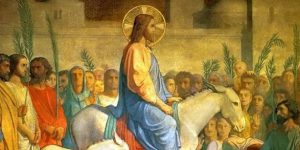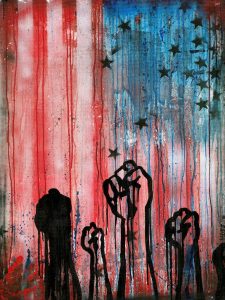What would it be to really rest? What does that even look like?
In my heart of hearts, I don’t know.
I have a vague memory of rest as a child. But then again, the rose-colored, sparkling recollections of our youth tend toward the unreliable. They are shadows without edges. They fade back and forth between truth and what we wish were truth. For some of us, childhood was a wondrous time filled with ease, freedom, unstructured afternoons, imagination without limits, softly oversized beds with cool sheets, and unmolested dreams. Some of us have those memories. Not all of us.
For those of us who do remember “rest” as the lack of real responsibility for everyone and everything around you – if you remember the joy of not having to adult and freedom from the knowledge of everything that could go wrong – that memory is unfortunately not the key to Jesus’ words today.
“Come to me, all you that are weary and are carrying heavy burdens, and I will give you rest.” The “rest” Jesus is talking about isn’t still waters and green pastures. We don’t get to hand over all our responsibilities, all our duties, all our obligations and say, “Jesus, take the wheel.” This isn’t a “Let go, and let God” kind of sermon.
Because it is important that we not let go. Letting go means letting go of each other. And “each other” is a responsibility worthy of a yoke.
In our Old Testament scripture, Abraham is at a crossroads. He has a vague memory of a promise God gave to him that he’d father a great nation. First there were the fertility issues. Then, when he finally sired a son, it wasn’t by the right woman. Then God told him to kill the right son born by the right woman. Then God told him, “Scratch that. Reverse it.” And now Isaac – the rightful heir to this promise – is without a wife. Isaac’s mother, Sarah, should have been the one to find him a wife, but now Sarah is dead and Isaac is devastated. So Abraham, well aware that he is upward in age and that he has limited time to assure his lineage continues, sends his servant back to his people, back to the country from which he came, to find Isaac a wife.
The servant’s biggest worry isn’t finding a suitable woman. They’re everywhere. The servant’s biggest worry is whether the woman will come back with him to marry a man unseen in a country unseen to fulfill a promise yet unseen.
I want to point that in this story, we do not see God act or speak. God is prayed to, God is mentioned, but in no way does God maneuver or manipulate or whisper or shout, as God does in the previous chapters. In this story God’s faithful people are the actors.
Abraham does the best he can with what he has and sends his servant to secure a wife. The servant prays and plans and watches and discerns. The community comes together to decide if their daughter should make this journey. And Rebekah, daughter to a powerful man, has the rare opportunity to choose her own way. She’s most likely no older than thirteen or fourteen. But she was strong – strong enough to water ten camels and strong to leave behind all of her family and all that she knows in order to assumes the responsibilities of a wife. Rebekah chooses to leave behind childhood grow up.
Change is always around the corner. It is the only constant in our lives. Elections happen. Leaders change. Businesses die. New ones rise. We consistently find ourselves in a new country, a new space, a place we never imagined ourselves being – and sometimes we arrive not by choice. Divorce or diagnosis or job loss – all are new countries with new rules. Sometimes just living each day it is exhausting.
Of course, we could opt out. We could stomp our feet, gather our toys, and go home. Grow bitter. Disengage. Live in memories of a time when things made sense. Whine like petulant children who didn’t get what they want, and now want nothing.
Or we could become paralyzed in our own anxiety, caught between what we want and what we don’t want, what we think we should want and what we can’t have. We could worry ourselves to death over what to do – so afraid we’ll make the wrong choice that we end up making no choice at all.
Our fear of failure is the heaviest burdens we bear. It’s funny. Failure is the one thing we all have in common. It’s our shared humanity. We all make mistakes, no matter how hard we try to get it right. No matter our best intentions. You’d think we’d be kinder to ourselves and to others when things turn sour. You’d think there would be a tiny slice of grace because each of us knows intimately the harsh and unforgiving landscape that makes up the land of failure.
Where’s the good news, Terry? There has to be good news. It is the Gospel after all. Frederick Buechner says that the Gospel is bad news before it is good news. It’s a tragedy before it’s a comedy. We are crushed by truth before that truth sets us free.
Here is the truth for us as best as I can discern it, from a woman who strives for perfection and who does not fully recollect what real rest looks like: Somewhere between the petulance of the Pharisees in the Gospel of Matthew and the angst of Paul in his epistle to the Romans, there is a yoke worth bearing. There are actions worthy of our effort. There is a land unseen. And there is a promise.
“Take my yoke upon you, and learn from me; for I am gentle and humble in heart, and you will find rest for your souls. For my yoke is easy and my burden is light.”
We are the people of God. God’s beloved. All of us. No exceptions. And we have a yoke to bear and work to do.
Jesus’ yoke in Matthew’s gospel included healing the sick, raising the dead, driving out demons, feeding the hungry, including the outcast, forgiving the sinner, and loving everyone. This is the yoke of action, this is the burden of carrying each other.
In this place, in this space, St. Thomas’ is trying its best to live out this promise. There’s been a lot of change, and we’re dealing with grief, and failure, and fear that we may not be up to the task. But here’s what continues to happen, even in the face of all that challenges us: every week men and women meet in our space to cast out demons of addiction; parishioners offer prayers for the sick and prepare meals for them; hospitality is given without condition to everyone who walks through those doors; our children and our youth are cared for and nurtured in the ways of love and kindness; we come together to worship and fellowship and share meals; and every Thursday men and women from our neighborhood walk out of our parish hall with enough food so their families can eat this month. That is a miracle.
It takes a community to carry this yoke. It takes each and every one of us supporting each other and supporting this place to continue this good work. We may not hear God’s literal voice, we may not see God’s literal hand, but that does not mean God is not in our story. God is in every person making our world a better place. God doesn’t want to be the only actor in this story. God expects us to act too. All that’s required is we do the best we can with what we have. Remember, we aren’t called to be successful. We are called to be faithful.
That’s where we find rest. We give up fighting to make sure everything is run our way. We throw off the back-breaking weight of fixing the world. We crush perfectionism with forgiveness. We strive for grace. We find our calm center, we claim the promise that we are God’s people, and we take a chance, trusting that failure is not fatal. Then we take each other by the hand, and we work on what’s right in front of us.
How do you eat an elephant? One bite at a time. How do we save the world? One small, kind action at a time.
“Come to me, all you that are weary and are carrying heavy burdens, and I will give you rest. Take my yoke upon you, and learn from me, for I am gentle and humble in heart, and you will find rest for your souls. For my yoke is easy, and my burden is light.”
Amen.
(Sermon preached at St. Thomas Episcopal Church on July 9, 2017. Scripture: Genesis 24:34-38, 42-49, 58-67, Psalm 45:10-17, Romans 7:15-25a, Matthew 11:16-19, 25-30)



Average Rating